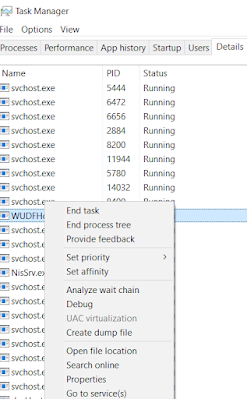Integrating InfluxDB with C++: A Beginner’s Guide to Time Series Data Management
InfluxDB is a high-performance, scalable time series database widely used for real-time data monitoring, IoT, and analytics applications. Integrating it with C++ allows you to build efficient data processing applications that deliver real-time insights. This guide is crafted for young professionals and college students seeking a step-by-step, easy-to-understand approach.
Why Integrate InfluxDB with C++?
Using InfluxDB with C++ brings several benefits:
• High-Performance Data Handling – Ideal for applications needing real-time analytics and high write loads.
• Versatile Data Monitoring – Perfect for IoT applications, sensor data collection, and performance analytics.
• Scalability – Supports projects ranging from small-scale prototypes to enterprise-level deployments.
For more details on InfluxDB features, you can check the official InfluxData documentation at https://docs.influxdata.com/influxdb/.
Prerequisites
Before starting the integration, ensure you have the following:
• A C++ development environment with a modern compiler (like GCC or Clang) and an IDE such as Visual Studio Code or CLion.
• InfluxDB installed on your system. Download it from https://www.influxdata.com/ and follow the installation instructions.
• An HTTP client library for C++, such as cpr (https://github.com/libcpr/cpr) or Boost.Beast (https://www.boost.org/doc/libs/release/libs/beast/doc/html/index.html), to interact with InfluxDB’s HTTP API.
Step-by-Step Integration Process
1. Install and Configure InfluxDB
Download InfluxDB and follow the installation guide. Once installed, launch the InfluxDB service and confirm it is running by accessing http://localhost:8086 in your web browser.
2. Set Up Your C++ Project
Create a new C++ project and integrate your chosen HTTP client library. For example, if you decide to use cpr, refer to its GitHub repository at https://github.com/libcpr/cpr for detailed integration instructions.
3. Writing Data to InfluxDB
To send data to InfluxDB, use its HTTP API with C++ code. Here is an example using cpr:
#include <cpr/cpr.h>
#include <iostream>
int main() {
// Data in InfluxDB’s line protocol format: measurement,tag set, field set
std::string data = "temperature,location=office value=23.5";
// URL to write data to InfluxDB (using database 'mydb')
std::string url = "http://localhost:8086/write?db=mydb";
// POST request to write data
auto response = cpr::Post(cpr::Url{url}, cpr::Body{data});
if (response.status_code == 204) {
std::cout << "Data written successfully!" << std::endl;
} else {
std::cout << "Error writing data: " << response.error.message << std::endl;
}
return 0;
}
This code demonstrates how to use InfluxDB’s line protocol for data formatting and an HTTP POST request to write data. A response with a 204 status code indicates a successful write.
4. Querying Data from InfluxDB
You can also retrieve data from InfluxDB using C++ and cpr. Here is a simple example:
#include <cpr/cpr.h>
#include <iostream>
int main() {
// Example query to retrieve all data from the 'temperature' measurement
std::string query = "SELECT * FROM temperature";
std::string url = "http://localhost:8086/query?db=mydb&q=" + cpr::util::urlEncode(query);
// GET request to query data
auto response = cpr::Get(cpr::Url{url});
if (response.status_code == 200) {
std::cout << "Query successful: " << response.text << std::endl;
} else {
std::cout << "Error querying data: " << response.error.message << std::endl;
}
return 0;
}
In this example, the query retrieves data using the InfluxDB query endpoint, and the JSON response can be parsed and used as needed.
Suggested Reads:
Final Thoughts
Integrating InfluxDB with C++ can significantly boost your application’s performance by enabling robust real-time data handling. This guide serves as a comprehensive starting point, covering everything from initial setup to practical code examples. For further updates and advanced configurations, refer to the official InfluxDB documentation and the cpr GitHub repository. Happy coding and best of luck with your InfluxDB and C++ projects!

Comments
Post a Comment